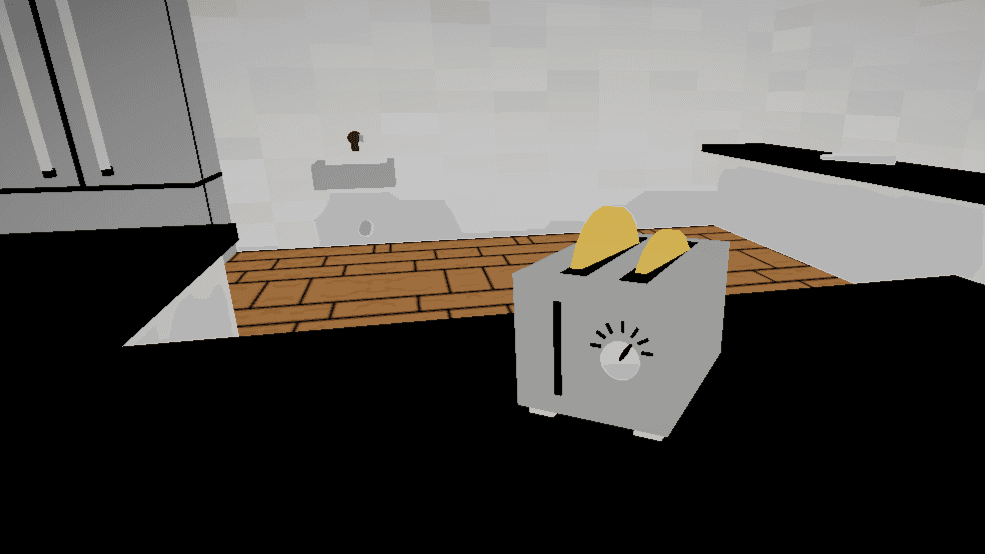Mohammed Abdur-Rahman and Vevaan Verma
USA
-
Completed in
2024
EQ Hacks is thrilled to feature our 1st-place winner article on the innovative game "boredom.," created by Mohammed Abdur-Rahman and Vevaan Verma.
Mohammed Abdur-Rahman and Vevaan Verma, the multi-talented minds behind the game project "boredom.," drew inspiration from the ubiquitous role of technology in modern society. Phones have become a central piece of everyone's everyday lives—positively and negatively. The two developers sought to delve into the complexities of our reliance on technology through, and as ironic as it is, the form of a video game.
Abdur-Rahman and Verma's project promises fun, indie-centered, and hilarious gameplay that made our judges think twice about boredom…
This game is anything but boring.
"boredom." is a multi-layered game designed to immerse players in a scenario that mirrors real-life phone usage. In the game, the player must look at their phone to decrease their boredom., but this comes with the trade-off of being unable to move or interact with anything else. However, at higher boredom. levels, the player moves slower and loses energy. Overall, the core objective is to complete certain tasks before the time limit expires, balancing the need to decrease boredom. with the urgency of completing tasks.
Game Mechanics: The game introduces a unique mechanic where players must manage their character's boredom. and energy levels. As boredom. increases, the character's energy decreases, causing them to move slower. However, if the player reduces boredom. to a certain threshold, they receive a temporary energy and movement boost. This strategic element forces players to decide whether to aim for the boost or maintain higher boredom. to complete more tasks within the allotted time.
Levels of Increasing Difficulty: "boredom." features multiple levels with increasing challenges. Players must balance phone use to combat boredom while completing tasks within time limits. Increasing boredom levels slow down the player, affecting energy levels. Upon lowering boredom to a specific threshold, a speed boost is granted, forcing players to choose between efficiency and sustained productivity. While adaptive music integration was considered to mirror boredom levels, time constraints prevented its implementation. "Boredom" offers a thought-provoking exploration of technology's impact on focus and productivity, prompting players to navigate a nuanced gameplay experience that mirrors modern dilemmas.
Audio and Visual Design: The game combines both 2D and 3D elements, offering a visually appealing experience that sets it apart from typical games, such as pixel art or solely 3D-mapped games. Mohammed and Vevaan utilized tools like Photoshop and paint.net for the art, and Audacity for the audio, to create a cohesive and immersive lighting environment with. The integration of 2D character sprites with 3D maps showcases the team's innovative “mixed” approach to its technical and UI skills.
Lagging through boring challenges while on a time crunch.
The niche details of the "boredom." project presented a steep challenge, specifically in managing time efficiently. Vevaan and Mohammed faced the task of different aspects of development, from meticulous planning to precise execution.
Integrating 2D and 3D elements, a rare feature in games, offered a unique learning opportunity for the team. They explored how the two engines can work together in Unity while improving their graphic design skills by creating art and textures. Despite their eagerness to implement complex features, they underestimated the time required for some tasks, resulting in a level of completion that was lower than originally intended. They also faced issues with Unity crashes and GitHub merging throughout the course of this project.
Nonetheless, the team achieved noteworthy accomplishments. Both talented developers are happy with the game's current state, even if it's not exactly what they envisioned. Developer Mohammed learned a wide variety of features inside of the Unity engine, along with how to juggle his strengths and weaknesses. UI design was seen as a challenge but was simplified for usability and, in our opinion, fits with the theme of boredom! Mohammed also comments that he learned various effective workflows and practices, specifically in the programming and gaming industry. For aspiring creators, we recommend listening to Mogammed on this: “Planning systems out in advance, whether it be on paper or digitally, is a very smart thing to do.”
This growth is also why Verma strongly urges, “As long as you are proud of your own accomplishments, it doesn't matter whether or not other people find them to be special. Keep doing your thing.”
As such, we encourage our future participants to work outside their comfort zone during our competitions.
Ultimately, we at EQ Hacks are confident that Mohammed and Vevaan’s dedication will continue to innovate, building on the solid foundation they created through their participation in EQ Hacks.
Will my boredom last forever?
The future of "boredom." is a bit uncertain, but Vevaan and Mohammed are optimistic about its potential. They wrapped up the game as much as possible before submission, yet there's a sense of unfinished business. More levels and a complete experience might be coming, although some of the current code is rushed and messy, which was demotivating to these bright developers.
Despite this, Mohammed and Vevaan are open to further development. They recognize the value in refining their work and are committed to returning to the project, especially if more bugs are found and crushed. Fleshing out "boredom." into a more complete and polished game is certainly not off the table for them, and we at EQ Hacks are hopeful in this path!
“Don't be afraid to experiment with uncharted areas of life (relates to how we experimented with a mix of 2D and 3D to develop a game).” - Vevaan Verma
Check out the boredom. team's work here:
Test it out here! https://drive.google.com/file/d/15umOaB4waARYAyMIVmJq-q76uZufTcKN/view
If you liked this article and enjoyed Mohammed Abdur-Rahman and Vevaan Verma's project, feel free to leave a comment of support on their DevPost page.
If you want the chance to get your own featured article, join our ongoing competitions.



